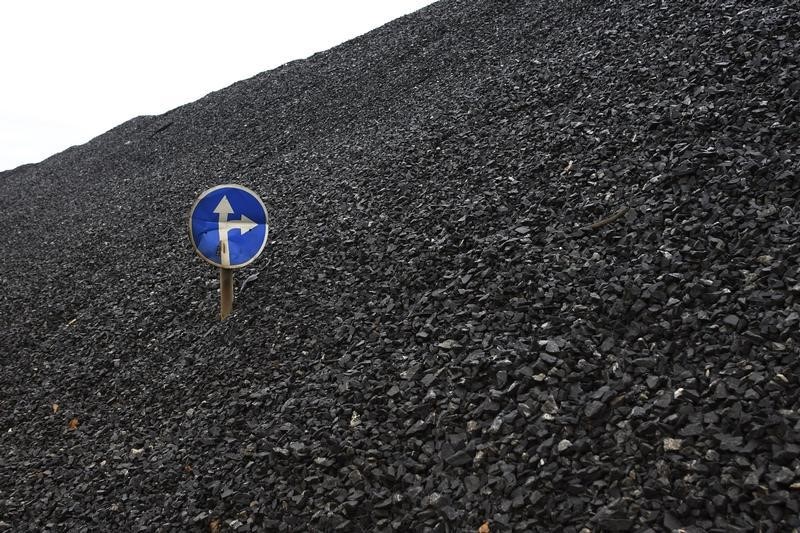* Import advantage eroded after 30 pct drop in domestic price
* Imports down 35 percent in December alone
* Further falls expected in 2016 as China targets fossil fuel cuts (Recasts to focus on annual numbers)
By David Stanway
BEIJING, Jan 13 (Reuters) - China's coal imports slumped 30 percent to 204.1 million tonnes in 2015, customs data showed on Wednesday, hit by a slowdown in domestic demand and a collapse in the price of locally produced coal.
Imports could fall further this year, analysts said, with overall demand still declining. Coal also faces the twin headwinds of state efforts to cut pollution and a weaker Chinese currency that will further erode the cost advantages once enjoyed by foreign miners.
"Going into 2016, the overall theme will still be there, with demand still weak as China steers away from high energy-intensive industrial growth and the replacement (of coal) by other energy sources continues," said Helen Lau, analyst with Argonaut Securities in Hong Kong.
She expected imports to fall another 10 percent in 2016,
While overseas suppliers could usually rely on lower production costs to undercut their Chinese counterparts during periods of high demand, their advantage has been eroded after a supply glut cut domestic coal prices.
"The decline in coal import volumes has two main causes - the decline in overall demand caused by China's economic slowdown, and the fall in domestic prices which has undermined the price advantage enjoyed by imported coal," said Zhang Xiaojin, a coal analyst with China's Everbright Securities.
Chinese coal producers, which suffered widespread losses last year, are desperate to cut production in order to shore up prices. China's raw coal output is expected to fall 4.2 percent in 2016 to 3.6 billion tonnes, down from an estimated 3.76 billion tonnes in 2015, according to the China Academy of Sciences.
Thermal coal prices at the northern port of Qinhuangdao SH-QHA-TRMCOAL lost nearly 30 percent over the course of last year and have held at 370 yuan ($56.25) per tonne since late November.
Lau said the devaluation of the Chinese yuan could help spur exports, but they were unlikely to exceed 5 million tonnes for the whole of 2016, given weak global demand.
($1 = 6.5783 Chinese yuan)
